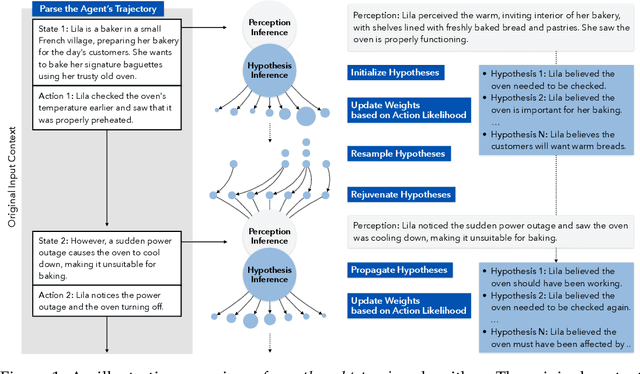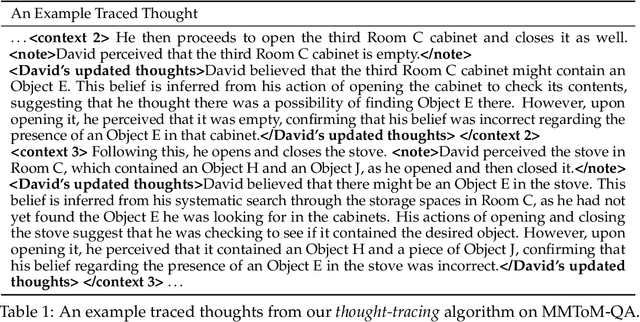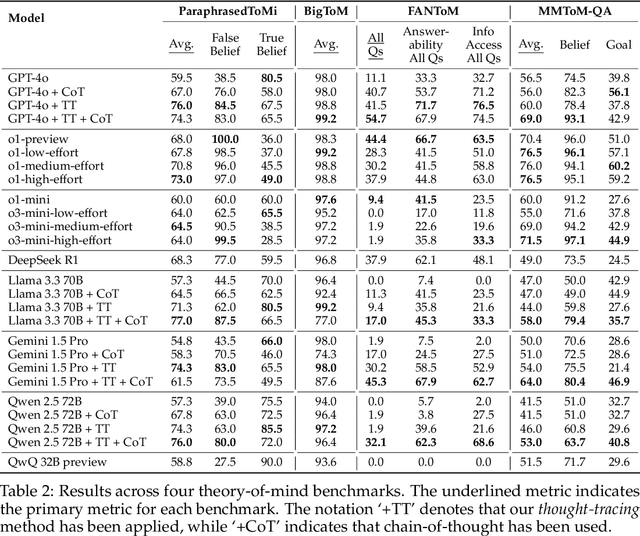Hypothesis-Driven Theory-of-Mind Reasoning for Large Language Models
Paper and Code
Feb 17, 2025



Existing LLM reasoning methods have shown impressive capabilities across various tasks, such as solving math and coding problems. However, applying these methods to scenarios without ground-truth answers or rule-based verification methods - such as tracking the mental states of an agent - remains challenging. Inspired by the sequential Monte Carlo algorithm, we introduce thought-tracing, an inference-time reasoning algorithm designed to trace the mental states of specific agents by generating hypotheses and weighting them based on observations without relying on ground-truth solutions to questions in datasets. Our algorithm is modeled after the Bayesian theory-of-mind framework, using LLMs to approximate probabilistic inference over agents' evolving mental states based on their perceptions and actions. We evaluate thought-tracing on diverse theory-of-mind benchmarks, demonstrating significant performance improvements compared to baseline LLMs. Our experiments also reveal interesting behaviors of the recent reasoning models - e.g., o1 and R1 - on theory-of-mind, highlighting the difference of social reasoning compared to other domains.
 Add to Chrome
Add to Chrome Add to Firefox
Add to Firefox Add to Edge
Add to Edge